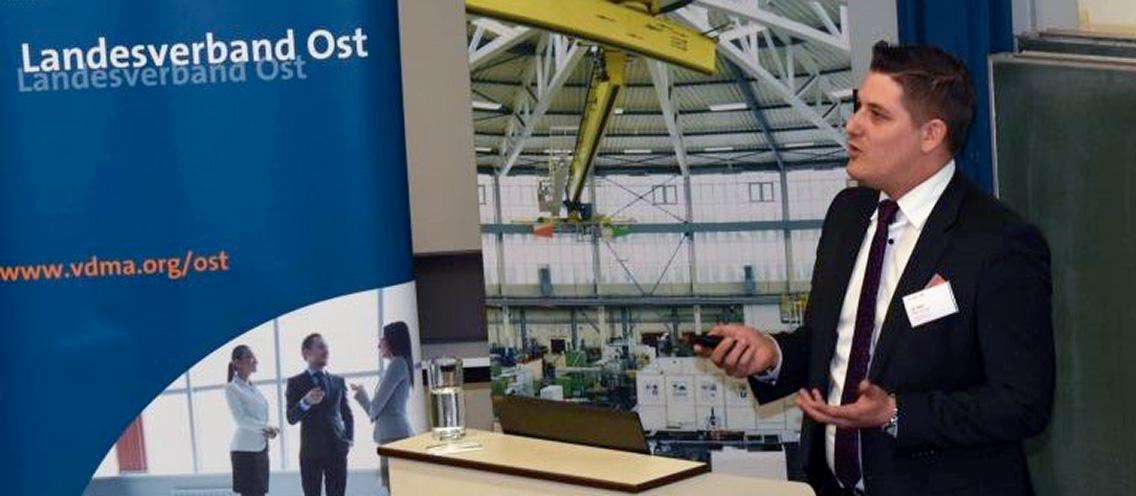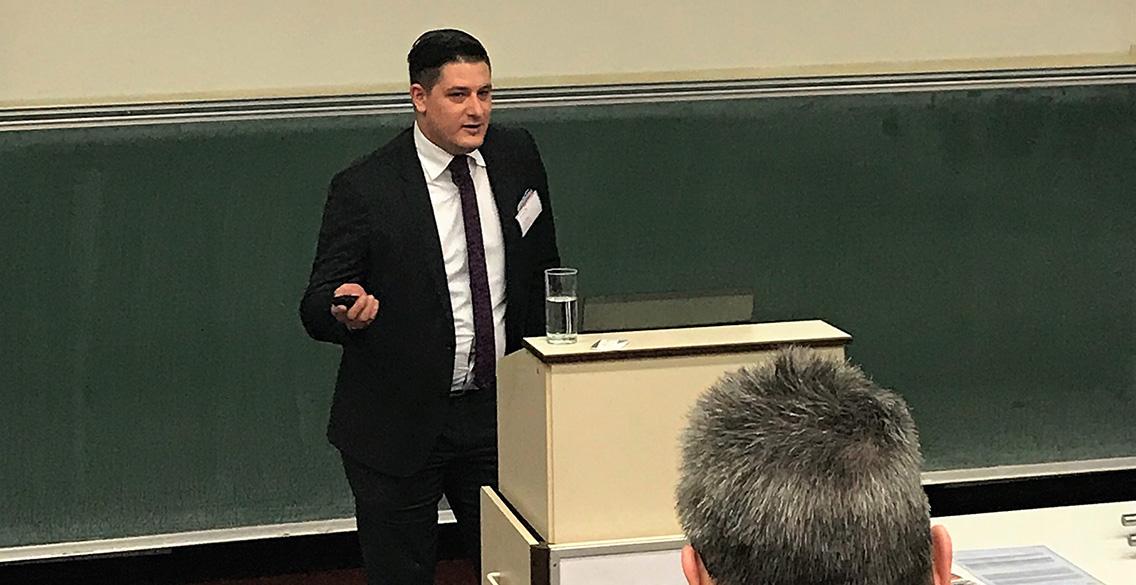Increase Productivity through flexible and intelligent CNC Manufacturing Processes
NCSIMUL presented at Machine Tools Conference “Berliner Runde”
“Increase in productivity through flexible and intelligent CNC Manufacturing Processes” was the theme of a specialist presentation of SPRING Technologies at the 13th “Berliner Runde“ in the Berlin Production Engineering Centre (Produktionstechnisches Zentrum). At this annual Machine Tools Conference and accompanying exhibition, high-level speakers from the machine tool and the component manufacturing industries, as well as users, talked about current and upcoming developments in the machine building industry.
This year's event from 1st – 2nd of March was focused on “cyber-physical systems as change enablers for modern production”. The trend towards small-batch production series and accelerated change of model generations is a challenge for modern-day industry to design their production processes more flexibly.
The path to digitalisation and the introduction to Industry 4.0 make this possible, as Jan Heger, Acount Manger DACH at SPRING Technologies GmbH explained: “We need digitalisation to stay competitive, to address both large concerns or to accommodate small precision manufacturers - it is essential to be more productive and stay ahead of competition.”
However, manual, one-directional and inflexible processes on the shop floor often prevent this to happen, he said. According to him, typical obstacles result in lengthy preparation times with a risk of tool collisions or manual re-programming. The use of instruction print-outs - in short, means there is a gap between CAD programming and the shop floor. Cyber-physical systems bridge this gap between the real and the virtual world. He subsequently demonstrated how CAD/CAM processes and what actually happens on the shop floor can be combined by using the NCSIMUL simulation tool. This solution exclusively simulates on the basis of actual machine data. Building a digital twin of the machine tool is therefore a prerequisite. The simulation resulting from this generates an error-free NC code and optimized processes, safely preventing collisions. Digitalisation and 3D images also create the basis for the end-to-end, bi-directional data exchange. This enables an end-to-end documentation, the exchange with suppliers, as well as a flexible machine switches. Preparation times can then be reduced by up to 70%, as Mr. Heger explained.
The participants of the 13th Berliner Runde also had the opportunity to experience the different solutions at the accompanying industry exhibition.
About the “Berliner Runde”
“Berliner Runde” is an annual machine tool conference, organized by the Fraunhofer Institut für Produktionsanlagen und Konstruktionstechnik (Fraunhofer Institute for Production Plants and Design Engineering - IPK) in cooperation with the Institut für Werkzeugmaschinen und Fabrikbetrieb (Institute for Machine Tools and Factory Operation - IWF) and the Verband Deutscher Maschinen- und Anlagenbau e.V. Ost (German Engineering Association East - VDMA). The event comprising of specialist presentations and accompanying exhibition addresses machine tool manufacturers and suppliers, as well as users of machine tools. Its objective is to present innovative machine designs and to promote the exchange of knowledge between the industry sector and science.



